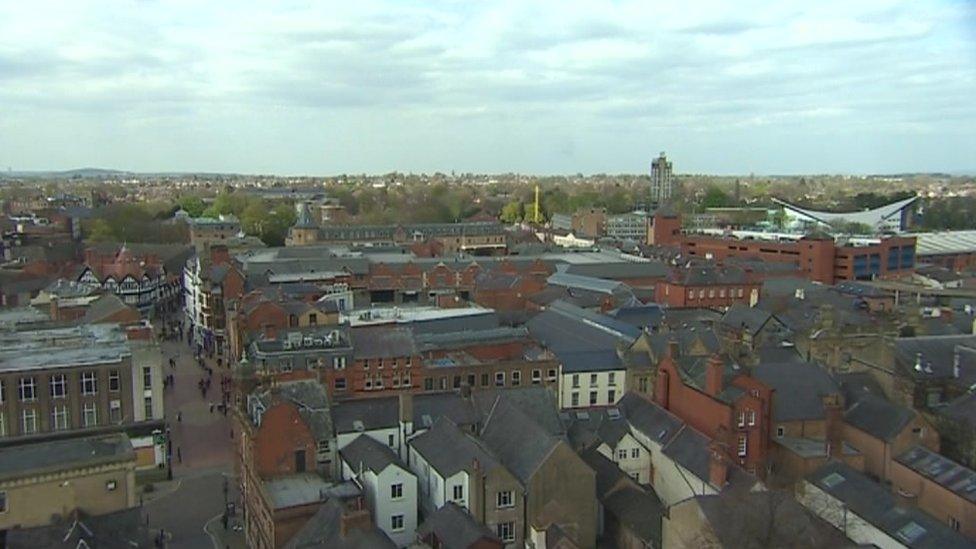Bangor police get new anti-social behaviour powers
- Published
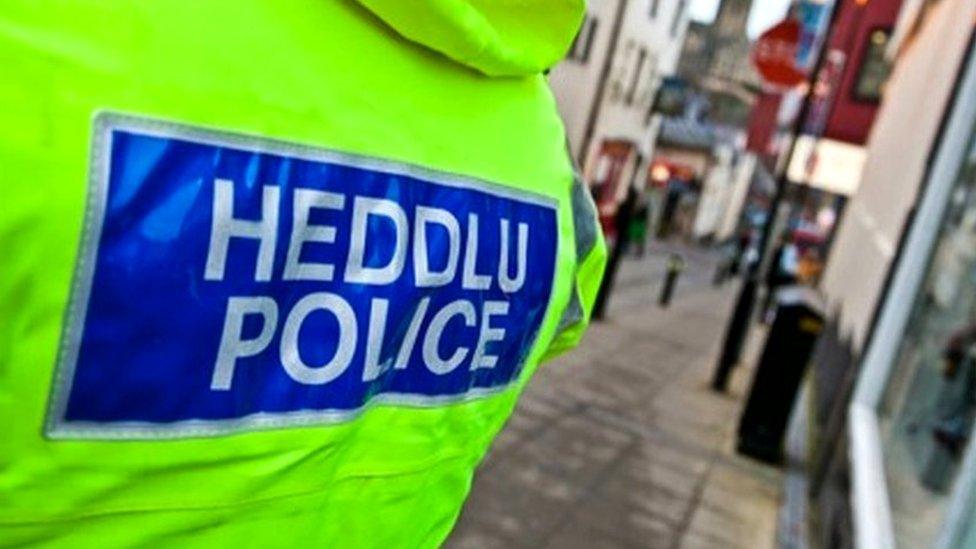
Police said their priority was to intervene early to prevent disorder on the streets
North Wales Police have been granted bolstered powers to tackle anti-social behaviour in Bangor city centre.
The force said the existing public spaces protection order (PSPO) was insufficient to deal with harassment and nuisance affecting traders, visitors, students and residents.
Rough sleepers would not be targeted under the new powers, Gwynedd council leaders were told.
The police said they would work with homelessness groups to help them.

What will the Bangor PSPO cover?
Behaviour in a manner that is likely to cause harassment, alarm, nuisance or distress
Loitering in a state of intoxication through alcohol or drug-induced activity
Consuming alcohol or being in possession of open containers of alcohol likely to cause or causing anti social behaviour
Loitering within 10 metres of any cash machine

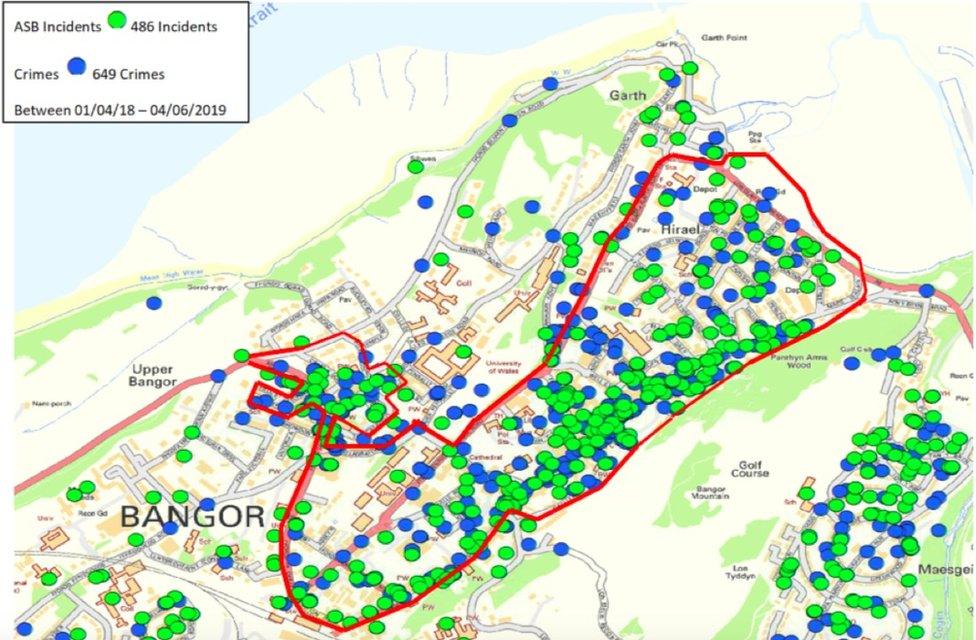
A police map showed more than 1,000 incidents in a 14-month period
In the 14 months between April 2018 and June this year, police said there were 486 incidents of anti-social behaviour and 649 crimes reported in Bangor.
A report to the council said a public consultation had resulted in 275 responses, most of them supporting the new powers.
Councillor Nia Jeffreys, cabinet member for legal services, admitted it had been a "long process" to draw up and agree the new powers.
"It is no small matter to place such restrictions," she said.
New signs will be put up alerting people to the new powers, while police would also explain them, according to the Local Democracy Reporting Service.
Inspector Kevin Bratherton, from North Wales Police, said: "In addition to providing an enforcement option the PSPO will allow early intervention and prevention through engagement and education.
"It's anticipated this will have a positive impact on anti-social behaviour and crime.
"None of the proposed conditions are unreasonable and they are specifically designed to tackle identified issues."
- Published17 July 2019
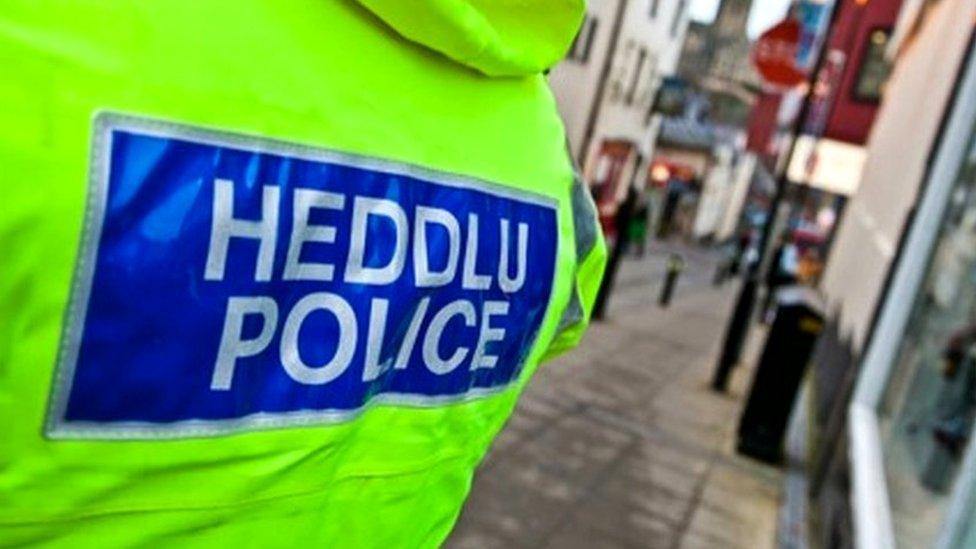
- Published18 December 2012
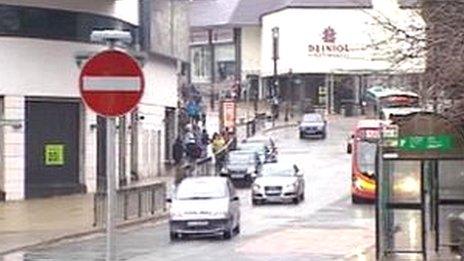
- Published23 July 2018
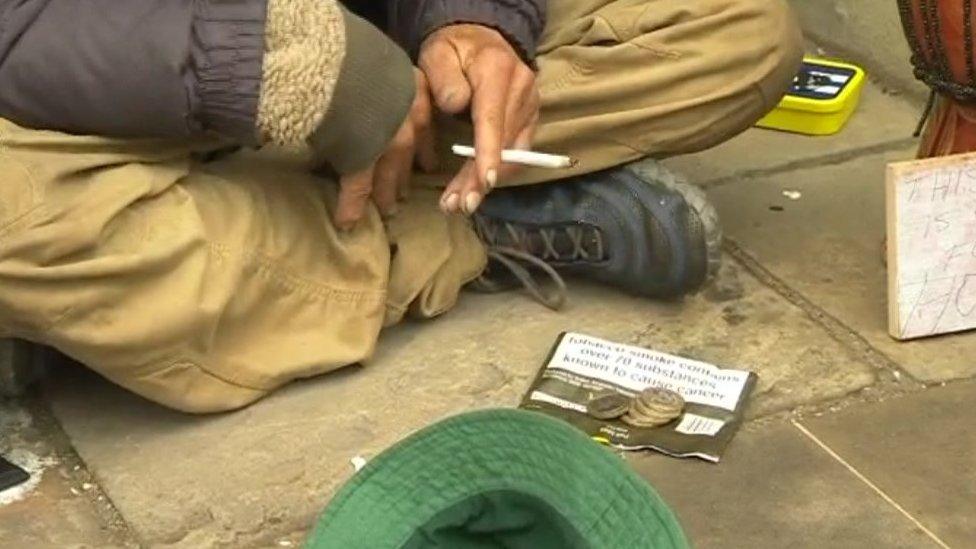
- Published9 December 2017
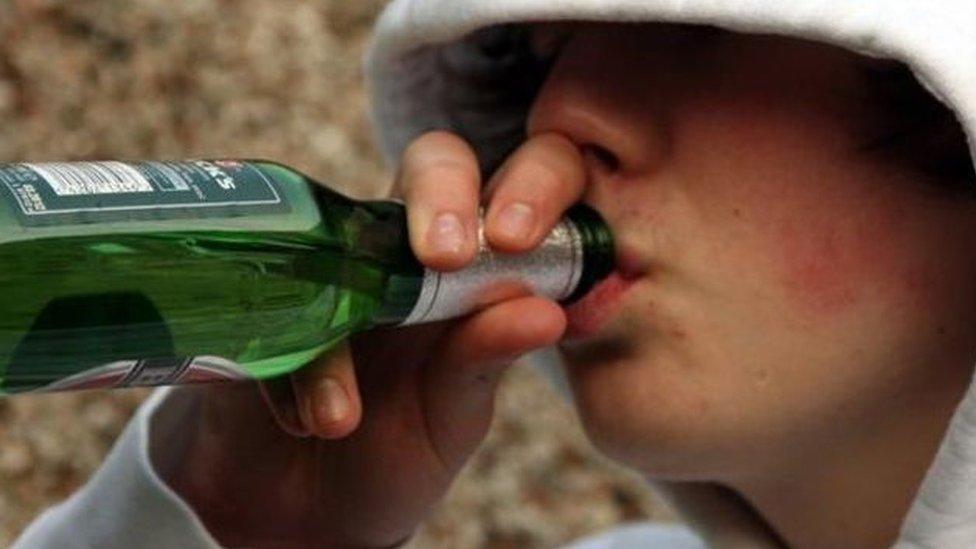
- Published24 July 2017
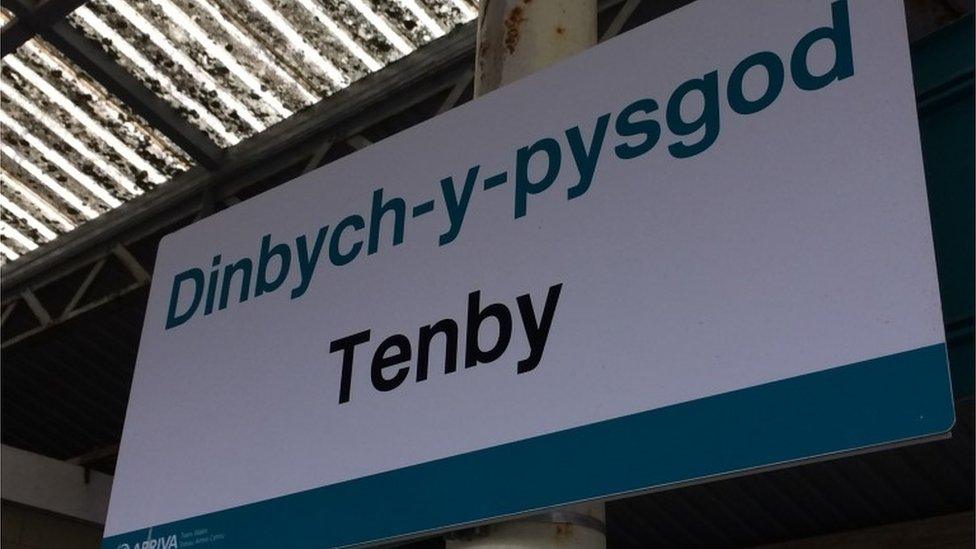
- Published27 November 2016
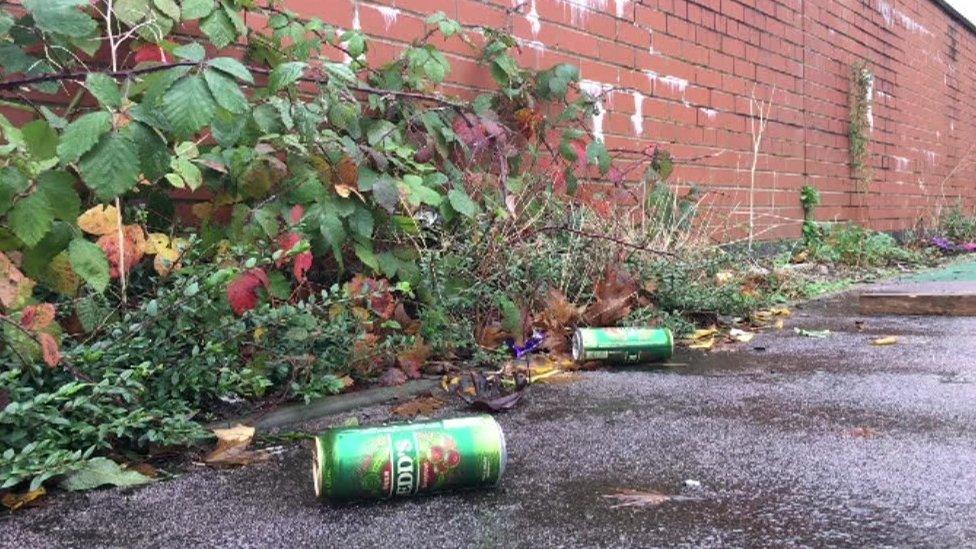
- Published1 August 2016
